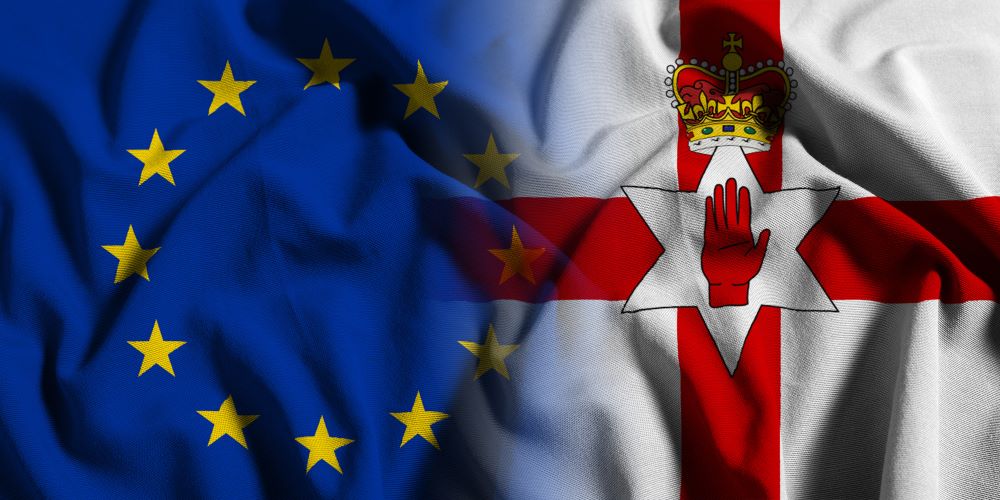
Prime minister Boris Johnson met with Northern Irish leaders today (16 May) to cajole them to “get back to work” amid the Stormont impasse over the Northern Ireland Protocol.
His visit comes ahead of the government’s much anticipated announcement of key legislation that could enable it to override elements of the Protocol.
Key legislation
With the DUP demanding the Protocol be scrapped before they restore power sharing in Stormont, Liz Truss is set to announce legislation that could effectively remove the customs border over the Irish Sea.
Although Sky News reports that the cabinet has not yet agreed the exact wording of the bill, it lists six key elements that the draft legislation could include:
- A green lane for trusted traders transporting goods to Northern Ireland and a red lane for products destined for the Republic of Ireland
- Increasing penalties for infringement and smuggling
- Measures enabling firms to produce goods to UK standards in Northern Ireland
- Transferring oversight from the European Court of Justice (ECJ) to UK courts
- Granting Northern Ireland the same VAT cuts as the rest of the UK
- An explicit pledge that the UK will never impose border infrastructure between Northern Ireland and the Republic
Shift in tone
Because Truss is only announcing the possible future law, not formally laying it before parliament, it may be some weeks before anyone sees the details of what the government is intending to do, according to Politico.
In the meantime, the UK can leave the prospect of the looming bill over ongoing talks with the EU in the weeks ahead as it continues to try to get Brussels to back down, the report claims.
PM outlines stance
In a lengthy piece in the Belfast Telegraph ahead of his visit to Northern Ireland today, Boris Johnson urged parties to restart the executive.
“Focus on everyday issues. Schools. Hospitals. Cost of living. So, it is time for all of the local parties to get back to Stormont. Elect a Speaker. Create an Executive. Get back to work,” he wrote.
Johnson also set out the UK’s objections to how the Protocol has been implemented, insisting it would be “wrong” to scrap the whole thing, but vowed to pursue changes.
He wrote: “The Government has a responsibility to provide assurance that the consumers, citizens and businesses of Northern Ireland are protected in the long-term. We will set out a more detailed assessment and next steps to Parliament in the coming days, once I return from discussions with the local parties.”
‘Fairly tough’ talks
Following her meeting with Johnson, Sinn Fein president Mary Lou McDonald said the encounter had been “fairly tough”, the News Letter reports.
“It’s very clear to us that despite all of the rhetoric from the British government about re-establishing the Executive here in the north, that in fact their priority is placating the DUP,” she said.
DUP leader Sir Jeffrey Donaldson said he did not have details of the government’s proposals for dealing with the Protocol, the BBC reports.
"We cannot have power-sharing unless there is a consensus,” he said. “That consensus doesn't exist."
Cost of doing business crisis
Firms are split over how damaging the Protocol is but are united on the idea that a UK-EU trade war would be a disaster, according to the Times.
Tina McKenzie of the Federation of Small Businesses said: “A trade war amid a cost-of-doing-business crisis is the last thing we need. The number of UK small firms currently exporting is already at a two-year low; if more barriers are put up, more will turn away from international trade, to the detriment of wider growth.”
While some companies said the Protocol provided “stability”, others said it added expense and delay to their supply chains.
Marks & Spencer’s Ireland and Northern Ireland director, Sacha Berendji, told the House of Lords that complying with the Protocol had cost the retailer £30 million and reduced the shelf life of its products.



